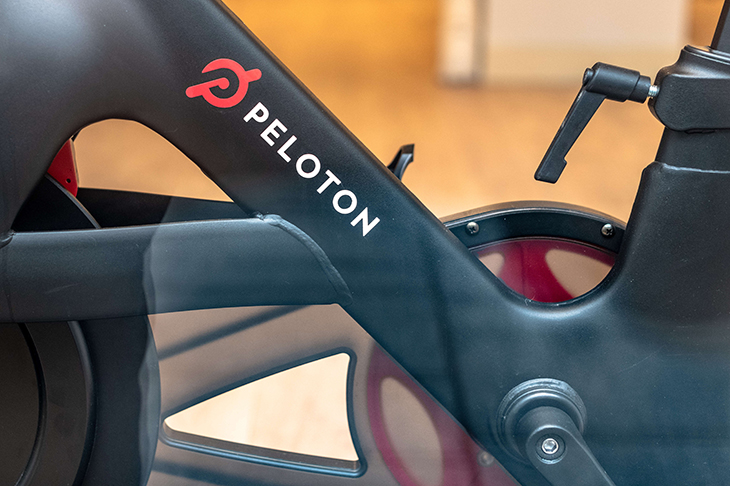You’ll have had enough of politics and punditry, so let me introduce a non-political City debate (even if rather a technical one) around the M&G Property Portfolio. Founded in 1931, M&G is a trusted brand in collective investment products for middle-class savers but appears to have done what we might nowadays call ‘a bit of a Woodford’: namely, it has temporarily closed its £2.5 billion property fund for investor redemptions, having reaped rich fees in recent years despite what the FT calls ‘substandard performance’.
The fund in question owns a wide spread of UK commercial properties, 40 per cent of them in the struggling retail sector. It is ‘open-ended’, meaning it can issue or redeem shares at any time in response to investor demand and should always hold sufficient cash to meet anticipated redemptions. But a tide of negative sentiment saw big withdrawals from other UK property funds last week — and redemptions from M&G’s fund (which was holding just 5 per cent cash at the end of October) have been frozen, with part of the blame, needless to say, placed on ‘Brexit-related political uncertainty’.
Sceptics challenge the wisdom of selling open-ended property funds to retail investors in any circumstances, given an obvious mismatch of liquidity. The gloomier the property scene and the consumer economy, the longer it will take a fund to convert property holdings into cash, but the more likely that unit-holders will want to get out in a hurry. Indeed, in some ways that’s a dumber model than the doomed (and also open-ended) Woodford Equity Income fund, with its illiquid holdings of small tech stocks that at least carried the possibility of exceptional long-term growth. In simple terms, illiquid assets of any kind should only really be held by small investors via quoted investment trusts whose shares are bought and sold at market prices, rather than issued and redeemed by fund managers.
As to fees, M&G has said it will waive 30 per cent of its charges while the property fund is suspended — whereas Woodford continued charging full fees, and saying nowt, until the game was up. Meanwhile, not all property funds are in the same boat as M&G’s; and M&G itself, with more than £300 billion under management, is a much bigger and sounder business than this one troubled fund. Nevertheless, this looks like a sector in need of a rethink.
Money giant
Paul Volcker, the former US Federal Reserve chairman who has died aged 92, was in every sense, including towering height, a giant of the money world — even if he was overshadowed for two decades after he retired in 1987 by the celebrity of his successor, Alan Greenspan. But I predict history will place Volcker higher in the pantheon. He was a granite-hard foe of inflation who cared nothing for popularity or personal reward and lived by the words of George Washington that hung in his town-clerk father’s office: ‘Do not suffer your good nature… to say yes when you ought to say no.’
Greenspan by contrast was a free–market pragmatist who basked in his reputation for special powers to calm or stimulate the economy at will — until it all went wrong in 2008, when he admitted he had ‘found a flaw’ in his own long-held beliefs. And it was Greenspan who told his biographer Sebastian Mallaby that Volcker’s painful money-tightening to quell raging US inflation in 1979-80 was ‘the most important action that the Fed ever did’.
Stick to sweaty blokes
When I lived in Tokyo as a young banker, it was briefly fashionable in my expat social circle to boast that you owned a Soloflex — an American-made weight-lifting bench that came with a very muscular instruction video. But after half a dozen unsatisfactory sessions, mine became the most expensive clothes-hanger in Asia and a source of irritation for years afterwards. And I’ve been reminded of it recently by television ads for Peloton exercise bikes, in which a remote, screen-based trainer shouts ‘We’re in this together’ at perspiring saps who have spent £2,000 to install one of these machines in their bedsits. And I’m amused to see that an attempt at a softer tone — a new ad featuring a nervous, doe-eyed ‘Peloton Wife’ who is given a bike for Christmas and doesn’t realise ‘how much this would change me’ — has backfired horribly, attracting a storm of accusations of sexism and a share sell-off that wiped $1.3 billion off the value of the New York-based Peloton company, whose IPO in September was led by Goldman Sachs and JPMorgan Chase. Moral of the story: sweaty blokes make safer marketing.
The other side
Election-week issues of The Spectator have special resonance for me. My debut here coincided with the supposedly too-close-to-call Major-vs-Kinnock poll in April 1992, when our editor Dominic Lawson needed one more non-political piece to fill a hole and my unsolicited essay on banking follies caught his eye. I actually spent most of that week campaigning with a blue rosette in the suburbs of York, and by Wednesday I was finding it not so difficult to call after all: at house after house I was told, ‘We don’t think much of Major but we’re certainly not voting for Kinnock’ — ‘Kinnock’ being preceded by a selection of epithets relating to the then Labour leader’s Welshness and verbosity that we might hesitate to print today.
There was nothing in Kinnock’s 1992 manifesto (which I see spoke of ‘enhanced capital allowances’ and ‘investment tax incentives’ from ‘a government which business can do business with’) remotely to compare with his successors’ mad Marxist agenda this time round. But I sense the sentiment of very many voters could be captured by that same repeated doorstep statement, updated for Boris and Corbyn. The damage to business prospects and national prosperity if I’m wrong doesn’t bear thinking about. See you on the other side.
Got something to add? Join the discussion and comment below.
Get 10 issues for just $10
Subscribe to The Spectator Australia today for the next 10 magazine issues, plus full online access, for just $10.
You might disagree with half of it, but you’ll enjoy reading all of it. Try your first month for free, then just $2 a week for the remainder of your first year.















Comments
Don't miss out
Join the conversation with other Spectator Australia readers. Subscribe to leave a comment.
SUBSCRIBEAlready a subscriber? Log in